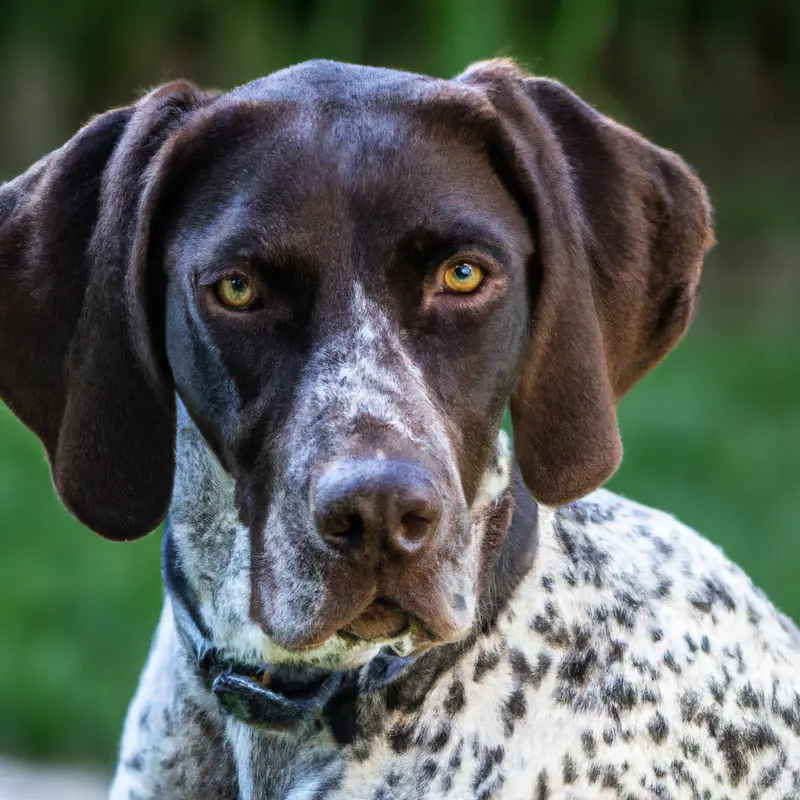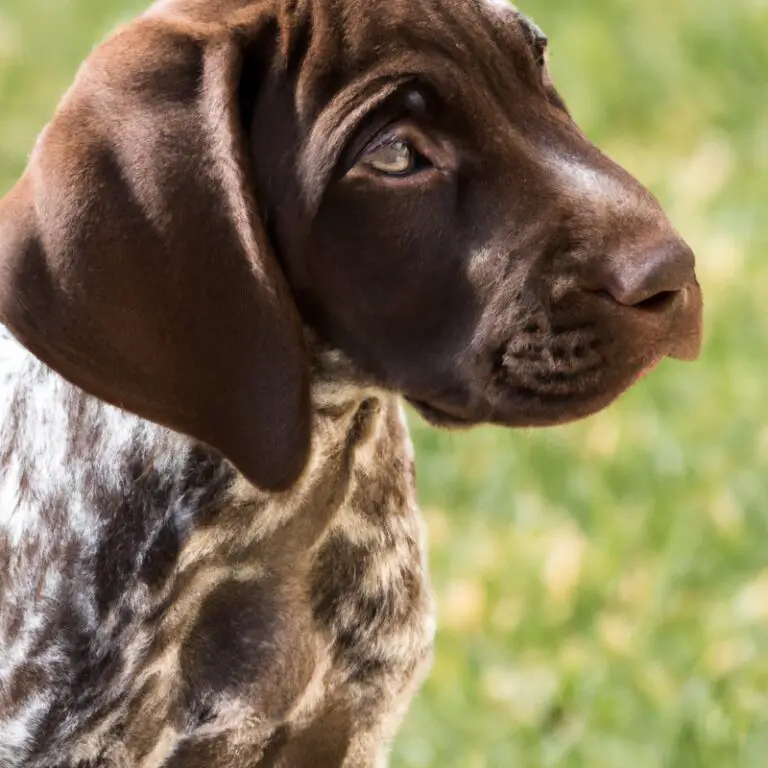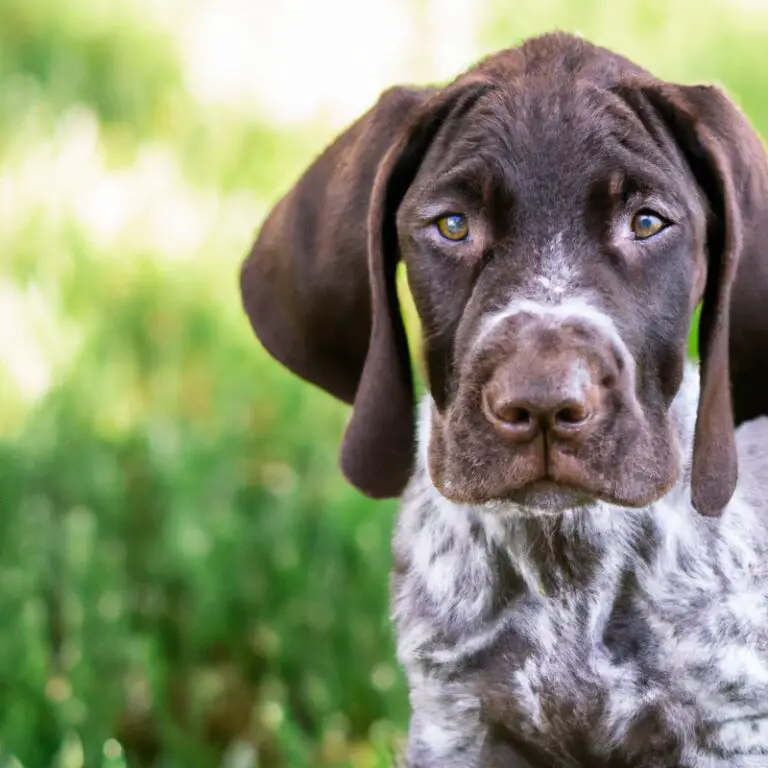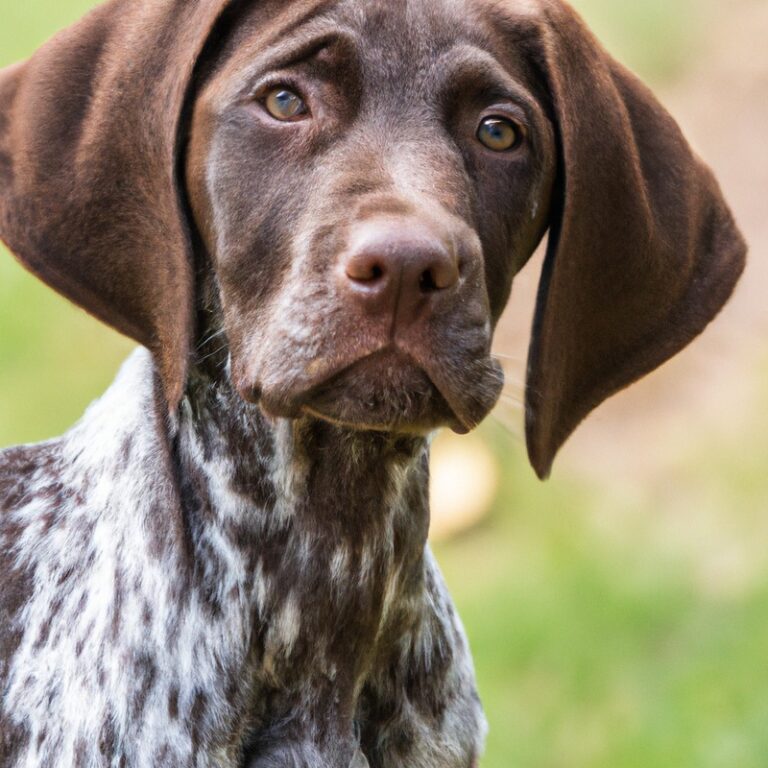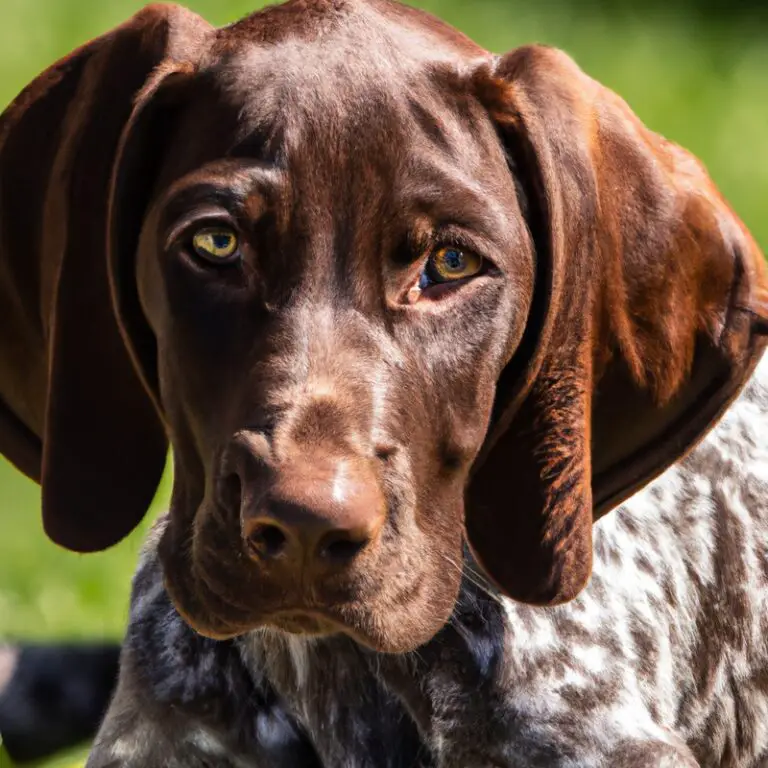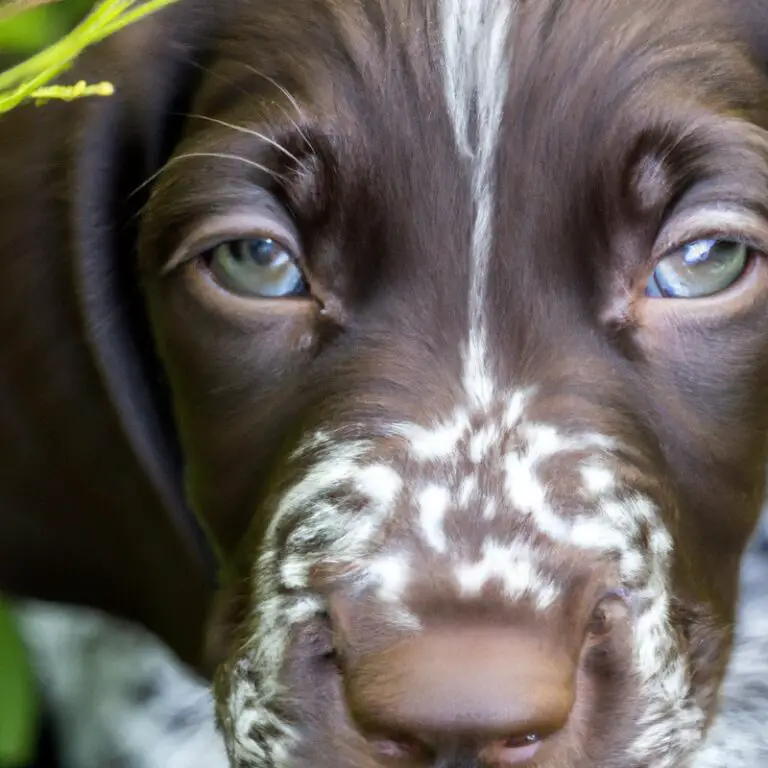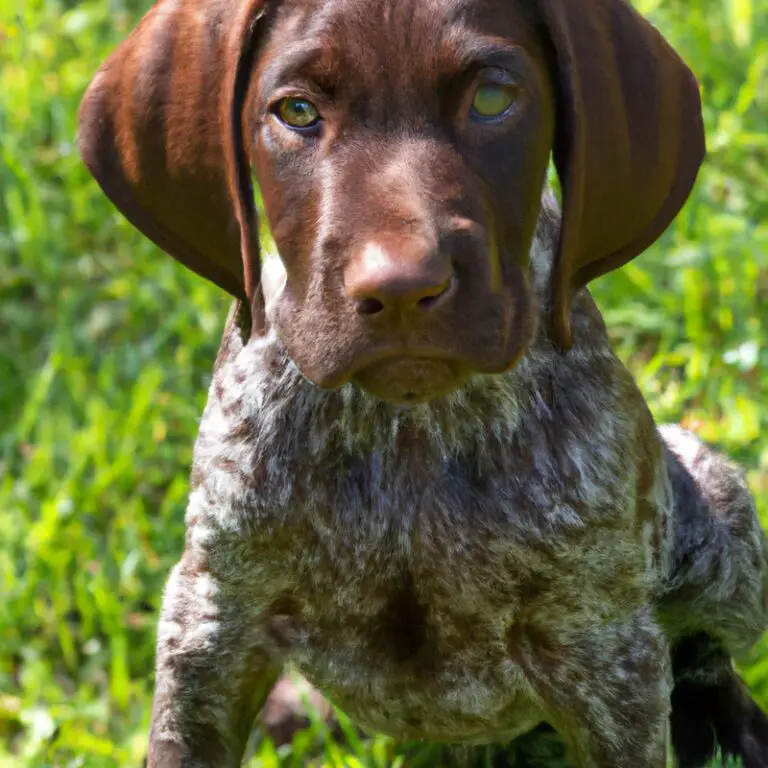Are German Shorthaired Pointers Good With Children?
Key Takeaways:
- German Shorthaired Pointers can make excellent family pets and often get along well with children.
- Their friendly and affectionate nature makes German Shorthaired Pointers a great choice for families with kids.
- It is crucial to supervise interactions between the dog and children to ensure a safe and positive experience for both.
- Proper socialization and training are essential for German Shorthaired Pointers to ensure they are well-behaved around children.
Are German Shorthaired Pointers good with children? If you’re considering adding a furry companion to your family, this question may have crossed your mind.
As a dog lover and experienced owner of German Shorthaired Pointers, I can confidently say that these intelligent and affectionate dogs can make wonderful companions for children.
But before you make a decision, it’s important to understand the unique temperament and needs of these energetic canines. In this article, I will explore the temperament of German Shorthaired Pointers, discuss the benefits of having them with children, and provide some practical considerations to keep in mind.
So, let’s dive in!
| Aspect | German Shorthaired Pointers |
|---|---|
| Temperament | Friendly and Gentle |
| Energy Level | High |
| Trainability | High |
| Size | Medium to Large |
| Exercise Needs | High |
| Playfulness | Very Playful |
| Protectiveness | Low |
| Interaction with Children | Usually good |
Are German Shorthaired Pointers Good With Children?
Understanding the Temperament of German Shorthaired Pointers
Understanding the temperament of German Shorthaired Pointers is key to knowing what to expect from these dogs. Let me break it down for you.
German Shorthaired Pointers are known to be friendly and outgoing.
They are generally good-natured and get along well with people, including children. These dogs are lively and energetic, which means they thrive in an active environment.
Keep in mind that this breed does require regular exercise and mental stimulation to prevent boredom.
German Shorthaired Pointers are also intelligent and trainable, making them a great choice for families who are willing to invest time in their training and socialization.
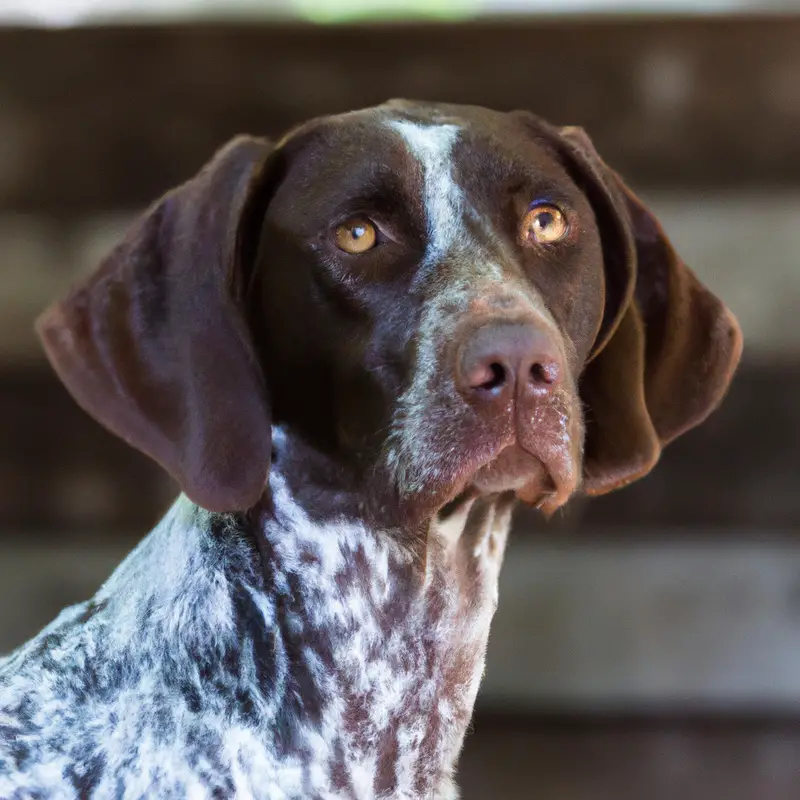
The Energetic and Active Nature of German Shorthaired Pointers
German Shorthaired Pointers are known for their energetic and active nature. These dogs thrive on physical exercise and mental stimulation.
They have a high energy level and need regular opportunities to release that energy.
Whether it’s playing fetch, going for long walks, or engaging in agility training, these dogs are always up for a fun activity. Their active nature makes them great companions for individuals or families who enjoy an active lifestyle and are willing to provide them with the exercise they need.
Additionally, their active nature often translates into a high level of enthusiasm and excitement, which can bring joy and entertainment to any household.
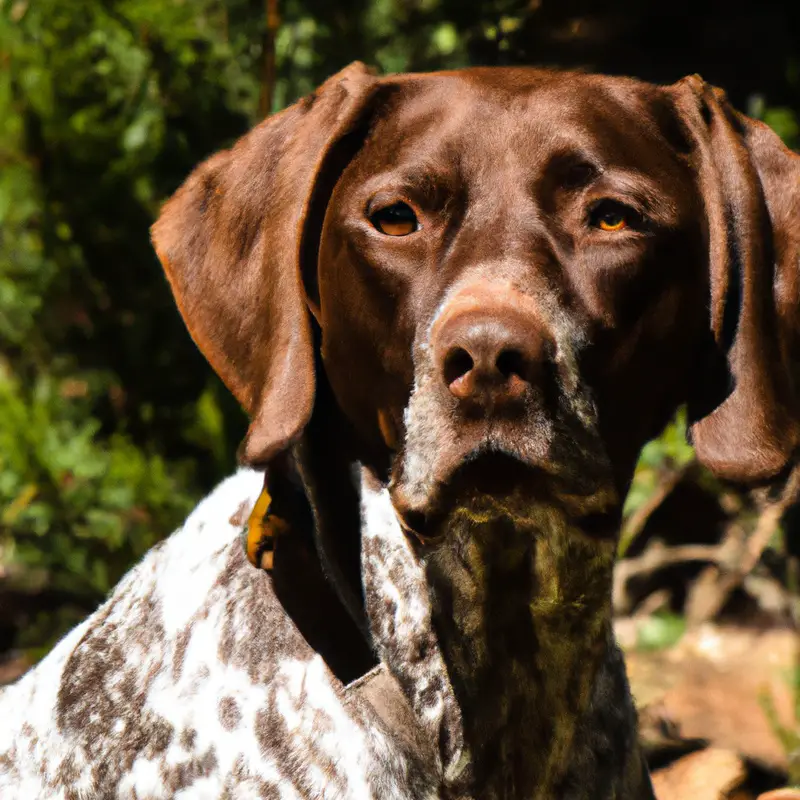
German Shorthaired Pointers and Their Protective Instincts
German Shorthaired Pointers have a strong protective instinct, making them excellent watchdogs for your family. They are known to be loyal, alert, and instinctively protective of their loved ones.
This breed is naturally cautious around strangers, making them ideal for keeping your home safe.
They will quickly pick up on any potential threats or unusual activities and react accordingly. Their protective instincts, combined with their intelligence and trainability, make German Shorthaired Pointers a great choice for families looking for a dog that can help keep their loved ones safe.
Socialization and Training for German Shorthaired Pointers and Children
Socialization and training are key factors in ensuring a positive and safe interaction between German Shorthaired Pointers (GSPs) and children. First and foremost, GSPs should be properly socialized from a young age to different people, places, and environments.
This will help them become comfortable and confident around children.
Exposing them to positive experiences with kids will also teach them how to behave appropriately and calmly in their presence. Training is equally important to establish boundaries and teach GSPs how to interact with children.
Basic obedience commands such as sit, stay, and leave it are crucial for their safety and the well-being of children.
Additionally, teaching children how to properly pet and handle a dog can also promote a harmonious relationship between them. By incorporating socialization and consistent training, GSPs can develop into well-mannered and adaptable companions for children.
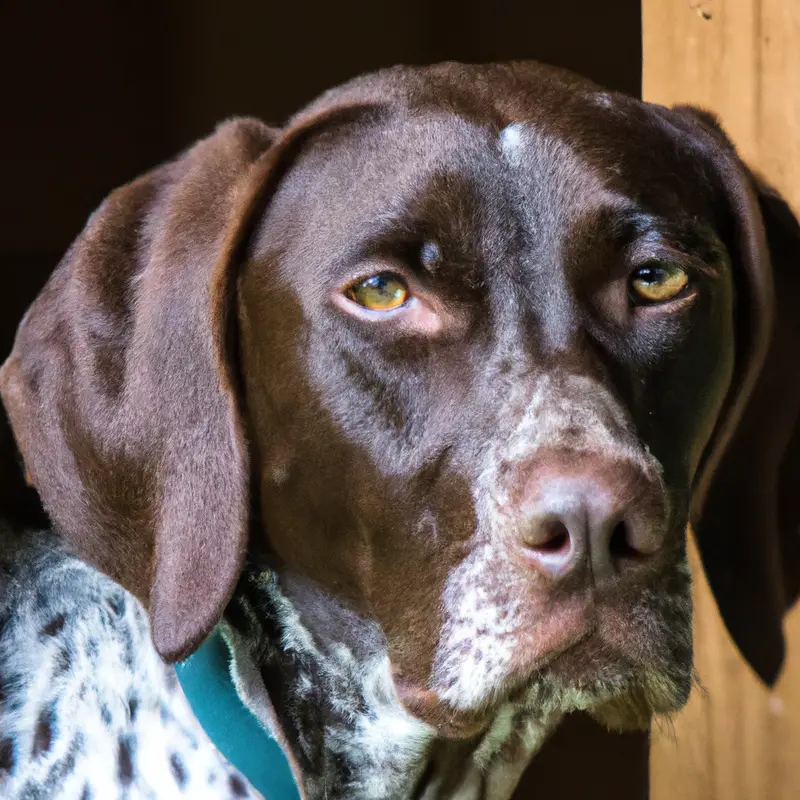
Benefits of Having German Shorthaired Pointers with Children
The Playful and Lively Nature of German Shorthaired Pointers
German Shorthaired Pointers are known for their playful and lively nature. These dogs have abundant energy and love to engage in various activities.
They enjoy playing games, going for long walks, and participating in outdoor adventures.
Their spirited nature makes them excellent companions for active families and children who love to play and explore. German Shorthaired Pointers thrive on physical exercise and mental stimulation, so they are always up for a game of fetch or a challenging puzzle.
Their energetic and lively personality adds a fun and dynamic element to any household.
German Shorthaired Pointers as Companions for Active Children
German Shorthaired Pointers make excellent companions for active children. These dogs are known for their energy and athleticism, making them the perfect playmates for kids who love to run and explore.
Whether it’s a game of fetch, a hike in the woods, or a swim in the lake, these dogs are up for any adventure.
Plus, they are intelligent and eager to please, making them easy to train and teach new tricks. With proper socialization and supervision, German Shorthaired Pointers can be loving and loyal members of the family, providing endless fun and companionship for active children.
The Loyalty and Devotion of German Shorthaired Pointers
German Shorthaired Pointers are known for their incredible loyalty and devotion. They form deep bonds with their owners and become true companions for life.
Whether it’s playing, exercising, or simply relaxing, these dogs are always by your side, eager to please and be a part of every moment.
Their loyalty shines through in their unwavering commitment to protecting and caring for their family members. With their strong sense of devotion, German Shorthaired Pointers make wonderful and trustworthy companions for individuals and families alike.
Promoting Responsibility in Children Through German Shorthaired Pointers
Promoting Responsibility in Children Through German Shorthaired Pointers Let’s talk about how these wonderful dogs can help teach our little ones some valuable life lessons! German Shorthaired Pointers are not only great companions, but they can also promote a sense of responsibility in children. First and foremost, having a German Shorthaired Pointer in the family means that the kids have a living creature relying on them for care.
Children can learn the importance of feeding, grooming, and exercising the dog.
This fosters a sense of responsibility as they understand that their actions directly affect the well-being of their furry friend. Moreover, German Shorthaired Pointers require regular exercise, which means the children will be encouraged to go outside and play.
It’s a win-win situation! The kids get to burn off some energy while forming a bond with their pet.
Another aspect to consider is the training that these intelligent dogs need. Children can participate in training sessions under adult supervision, teaching them discipline and patience.
They will understand that consistency and kindness are key to achieving positive results, which can be applied to other areas of their lives as well.
Considerations When Owning German Shorthaired Pointers with Children
Supervision and Safety Precautions for Young Children
When it comes to owning a German Shorthaired Pointer (GSP) and having young children, supervision and safety precautions are crucial. First and foremost, it’s important to always supervise interactions between the GSP and your young child.
This will ensure that any potential rough play or accidental harm can be quickly addressed.
Additionally, teaching your child how to properly interact with the GSP is important. Teach them to be gentle, not to pull on the dog’s tail or ears, and to avoid bothering the dog while it’s eating or sleeping.
Setting boundaries for both the GSP and your child is also essential.
Create safe spaces where the GSP can retreat to if it needs a break from the child’s attention. Teach your child to respect these boundaries and to give the dog its space when needed.
Implementing safety precautions such as using baby gates to separate areas of the house, and using a harness or leash when walking the GSP with your child can help prevent accidents or the dog from running off.
Teaching Children How to Properly Interact with German Shorthaired Pointers
Teaching children how to properly interact with German Shorthaired Pointers is essential for creating a safe and positive environment for both the children and the dogs. First and foremost, it’s important to teach children to approach dogs calmly and respectfully.
They should never run towards a dog or make sudden movements that could startle or agitate them.
Instead, encourage them to approach slowly and gently. Secondly, instruct children to always ask for permission before petting a German Shorthaired Pointer or any other dog.
This teaches them to respect the dog’s personal space and helps prevent any unwanted or uncomfortable interactions.
Additionally, children should be taught to avoid pulling or tugging on the dog’s ears, tail, or any other body parts. Rough play can be stressful for the dog and may lead to aggression or fear.
Furthermore, it’s crucial to emphasize that children should never disturb a dog while they are eating, sleeping, or caring for their puppies.
Dogs need their own space and time to rest, eat, and care for their young. Lastly, teach children the signs of a dog that is feeling anxious, scared, or agitated, such as growling, barking, or trying to move away.
This will help them recognize when a dog is uncomfortable and know when to give them space.
By following these guidelines and teaching children how to properly interact with German Shorthaired Pointers, you can promote a positive and safe relationship between children and dogs.
Addressing Potential Allergies or Sensitivities
Addressing Potential Allergies or Sensitivities If you or someone in your household has allergies or sensitivities, it’s important to consider this when owning a German Shorthaired Pointer. While German Shorthaired Pointers are generally considered hypoallergenic due to their short and dense coat, it’s still possible for some individuals to have allergic reactions.
To address potential allergies or sensitivities, here are a few steps you can take:
- Consult with a doctor or allergist. They can help determine if owning a German Shorthaired Pointer is suitable for you or your family members with allergies or sensitivities.
- Spend time with a German Shorthaired Pointer before bringing one home. This will give you an idea of any potential allergic reactions or sensitivities you or your family members may have.
- Keep a clean home. Regular vacuuming, dusting, and keeping the living area free from pet dander can help minimize allergic reactions.
- Establish a grooming routine. Regularly brush your German Shorthaired Pointer to remove loose hair and minimize allergens.
Exercise and Mental Stimulation for German Shorthaired Pointers and Children
German Shorthaired Pointers are active and energetic dogs, and it’s important to ensure they get enough exercise to keep them happy and healthy. When it comes to exercising with children, it can be a great way to bond and burn off some energy together.
Taking your German Shorthaired Pointer for daily walks or runs is a good start.
You can also play games like fetch or engage in agility activities, which will not only provide physical exercise but also mental stimulation. It’s crucial to remember that both the dog and the child should be supervised during these activities to ensure safety.
Tips for Introducing German Shorthaired Pointers to Children
Gradual Introductions and Controlled Environments
When introducing German Shorthaired Pointers to children, it’s important to take things slow and create a controlled environment. Gradual introductions are key to building a positive relationship between your dog and the kids.
Start by allowing them to interact for short periods of time under supervision.
This way, both the children and the dog can get comfortable with each other’s presence. Make sure the environment is calm, quiet, and free from distractions.
Avoid overwhelming your dog or the children with too many new experiences at once.
By gradually introducing them and providing a controlled environment, you can help foster a safe and enjoyable relationship between your German Shorthaired Pointer and your children.
Involving Children in the Training Process
Involving children in the training process can be a fun and educational experience for both the kids and the dogs. It helps to build a strong bond between them and teaches valuable lessons about responsibility and empathy.
Here are a few tips on how to involve children in training your German Shorthaired Pointer:
- Start with basic commands: Teach your children simple commands, such as sit, stay, and come. Make it a game and reward both the child and the dog for their efforts.
- Supervise closely: Always supervise your children when they are interacting with the dog during training sessions. This ensures safety for both parties and allows you to provide guidance when needed.
- Encourage positive reinforcement: Teach your children to use positive reinforcement, like treats or praises, to reward the dog for good behavior. This helps the dog associate training with positive experiences and motivates them to learn.
- Make it age-appropriate: Adjust the training activities according to your child’s age and abilities. Younger children can focus on simple tasks, while older ones can gradually take on more advanced training techniques.
- Involve the child in decision-making: Let your child have a say in training decisions, such as choosing the next command to teach or participating in training sessions. This gives them a sense of ownership and responsibility in the process.
Promoting Positive Associations between German Shorthaired Pointers and Children
When it comes to promoting positive associations between German Shorthaired Pointers and children, there are a few things you can do to create a happy and safe environment for both. First and foremost, always supervise any interactions between your dog and children to ensure everyone’s safety.
One important aspect is to teach children how to properly interact with dogs, such as not pulling their ears or tail, and approaching them calmly and gently.
Encourage children to respect the dog’s boundaries and personal space. Another way to promote positive associations is through positive reinforcement and reward-based training.
Teach your German Shorthaired Pointer basic commands and include the children in the training process.
This will help build a bond and trust between them. Lastly, make sure your dog gets plenty of exercise and mental stimulation.
A tired dog is generally a happier and more well-behaved dog.
Consider involving children in activities like playing fetch or going for walks with the dog, which can be fun for everyone involved. By incorporating these tips, you can foster a positive and harmonious relationship between your German Shorthaired Pointer and the children in your family.
Addressing Any Negative Behaviors or Aggressions
Addressing any negative behaviors or aggressions in German Shorthaired Pointers is crucial for creating a safe and harmonious environment, especially when children are involved. First and foremost, consistent and positive reinforcement training is key.
Reward good behaviors and redirect any negative behaviors with firm, yet gentle correction.
Keep a close eye on your dog’s body language and intervene if you sense any signs of aggression or discomfort. Socialization with children and other animals from a young age can also help prevent negative behaviors.
Seek professional guidance if needed to address any persistent issues.
Frequently Asked Questions About German Shorthaired Pointers and Children
How do German Shorthaired Pointers interact with infants or toddlers?
German Shorthaired Pointers can be great companions for infants and toddlers. They are generally gentle and patient dogs, which makes them suitable for families with young children.
These dogs tend to be protective of their family members, including the little ones.
German Shorthaired Pointers are known to be affectionate and loving towards children. They enjoy playing and are often tolerant of roughhousing.
However, it’s important to supervise interactions between dogs and young children to ensure everyone’s safety.
These dogs can adapt well to the energy levels of infants and toddlers. They are active dogs themselves and love to engage in playful activities.
German Shorthaired Pointers are also intelligent, which makes them trainable and able to learn how to behave around young children.
Keep in mind that every dog is unique and may have different temperaments. It’s crucial to introduce a German Shorthaired Pointer to a child in a calm and controlled environment.
Teach your child how to approach and interact with the dog respectfully, and always monitor their interactions to prevent any potential incidents.
Are German Shorthaired Pointers suitable for families with older children?
German Shorthaired Pointers can be a great fit for families with older children. These dogs are known for their friendly and playful nature, making them excellent companions for kids.
They have plenty of energy to keep up with active lifestyles and love to engage in outdoor activities.
German Shorthaired Pointers are generally gentle and patient, which makes them well-suited for family environments. However, it is important to note that proper socialization and training are essential to ensure a harmonious relationship between the dog and children.
Can German Shorthaired Pointers be left alone with children?
When it comes to leaving German Shorthaired Pointers alone with children, it’s important to consider their temperament and behavior. While GSPs can be great family dogs, it’s generally not recommended to leave them unsupervised with young children.
These dogs are energetic and have a strong hunting instinct, which can sometimes lead to them being too boisterous or rough with kids.
Additionally, GSPs can get anxious or bored if left alone for long periods of time, which may result in unwanted behaviors. It’s always best to supervise interactions between GSPs and children to ensure everyone’s safety and happiness.
How do German Shorthaired Pointers handle rough play from children?
German Shorthaired Pointers are generally known to handle rough play from children quite well. They have a high energy level and playful nature, which makes them well-suited for active kids.
These dogs are often patient and tolerant, able to withstand some roughhousing without becoming aggressive or upset.
However, it’s important to note that like any dog, individual temperament can vary. Proper supervision and teaching children to be respectful and gentle with the dog is still essential to ensure a positive interaction between your German Shorthaired Pointer and your children.
Final Verdict
German Shorthaired Pointers can indeed be great companions for children when given the proper training, socialization, and supervision. Their friendly and lively temperament, combined with their protective instincts, make them suitable playmates for active children.
Furthermore, owning a German Shorthaired Pointer can teach children responsibility and promote a sense of loyalty and devotion.
However, it is important for parents to be aware of safety precautions, promote positive interactions, and address any potential issues that may arise. By following these considerations and tips, German Shorthaired Pointers can form loving and lasting bonds with children, creating cherished memories for both.
As an expert in this field, I confidently assert that German Shorthaired Pointers can indeed be good with children, making them a wonderful addition to any family.

